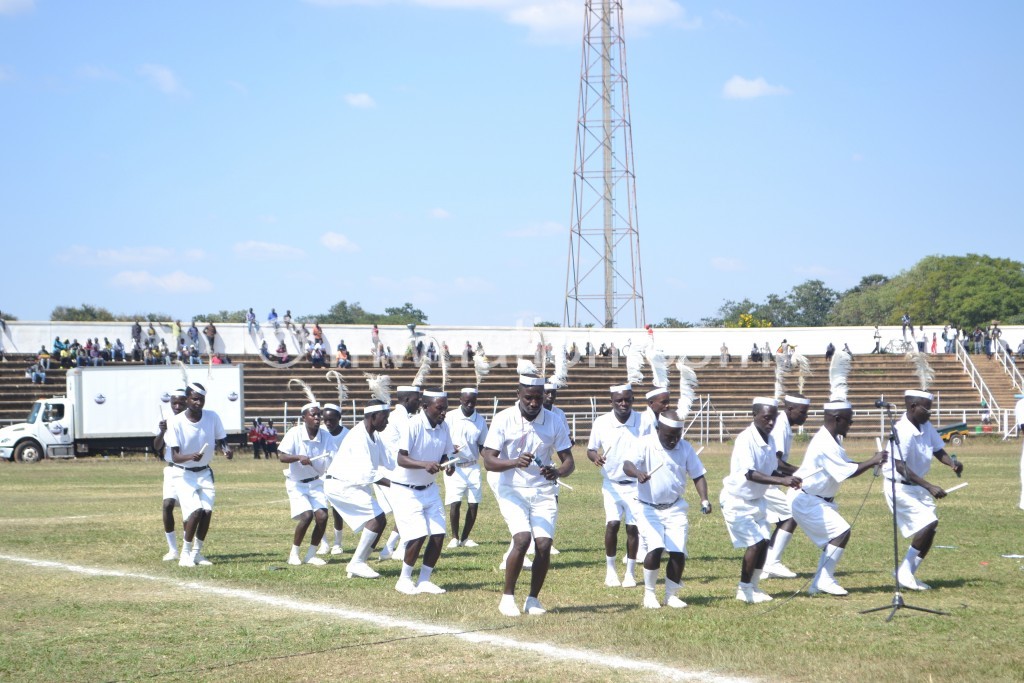The chief who paid a fine
Senior chief Kachindamoto’s global standing keeps rising. Her remarkable battle to combat maternal deaths and keep girls in school continues. Her headquarters in Dedza frequently hosts international journalists swayed by the fight to stop girls from marrying before their 18th birthday and pregnant women from dying while giving birth.
Group village head Mtowa of Karonga is her staunch admirer. When he adopted the bylaws similar to Kachindamoto’s, he was subtly stating that she cannot win the war on maternal deaths single-handedly.2

To him, traditional leaders have to join since they have the influence to lessen this silent crisis.
“We’ve buried enough women and newborns. We cannot continue like this,” he said.
In his remote terrain, Mtowa is a revered male champion for safe motherhood. He lists down all pregnancies in his territory, urges the women to rush to the nearest clinic and makes frequent follow-ups to ascertain compliance to the bylaws traditional leaders in Karonga adopted in March and World Health Organisation (WHO) guidelines which require them to see skilled health workers four times before giving birth.
He works with the villagers, reformed birth attendants, men championing gender parity and the youth to combat harmful cultural practices that make pregnancies risky.
Government has banned traditional birth attendants, but Karonga’s traditional leaders are working with Foundation for Community Support Services (Focus) to make sure all pregnant women are referred to skilled health workers.
In June, however, Mtowa became the first village head punished according to the bylaws signed by Paramount Chief Kyungu and the traditional leaders.
Kyungu fined him K15 000—an equivalent of a goat—when his 15-year-old daughter delivered at home.
The locals find the penalty a sufficient sanction to ensure every baby is born in safe hands.
Mtowa himself regrets being punished for “sins of my daughter”.
He rues last year’s malipenga dance festival. Enthusiastic crowds walk long distances to watch the once-in-a-year dance encounter. However, the tragedy is that it drives girls into child marriages and unwanted pregnancies as they keep falling prey to prowling men from far and wide.
Mtowa’s daughter was impregnated by one of the men she met at the rural dance party. She personifies one in two Malawian girls who marry before their 18th birthday, according to United Nations.
However, the punishment Mtowa suffered demonstrates nobody is above the local laws Kyungu enforces religiously.
He explains: “We crafted the bylaws and I am in the forefront making sure that everyone adheres to them. I am not immune.
“If a woman delivers on the way to a health facility, both the mother and the father have to pay K10 000.”
Maternal complications constitute a leading cause of death among women and girls. Up to 675 lives are lost in every 100 000 live births, figures show.
The Ministry of Health attributes the maternal mortality rates, one of the worst in Southern Africa, to delays in deciding to seek medical care and long travels to health facilities as the majority of rural Malawians walk over 15kms.
“When my daughter delivered, I had no transport to rush her to Lupembe Health Centre in time. It’s hard to enforce the bylaws, but I had to pay the fine because I’m committed to what we are doing in the district,” Mtowa said.
Mtowa area is only accessible through a 13km rugged earth road that meanders up and down Kafinyenkhu to the health centre.
Home deliveries are declining. In January, before they came into force, Lupembe registered 13 babies born at home or in the banned birth attendants’ shrines. From May to June, none occurred—save for Mtowa’s daughter.
Focus and Adventist Health Services (AHS) supported the traditional leader to compile the dos and don’ts to improve maternal and child health in Karonga. The project, funded by Christian Aid and UKAid Match, targets nearly 27 000 women as it envisions increase demand and uptake of the life-saving services in Karonga.
Project coordinator Griffs Nyirongo expects risky childbirth to keep falling.
“The community leaders must take a leading role to ensure no woman delivers in risky circumstances. We also applaud men who escort their partners to clinics to receive antenatal care,” Nyirongo said.
Persuading men and women to refer every pregnancy and child health cases to qualified health workers is no option.
Between 2014 and 2015, about 200 women in Karonga gave birth at home and under the watch of unskilled birth attendants. Eleven of them died.
NGO-Gender Coordination Network (NGC) chairperson Emma Kaliya recommends more awareness to strengthen the impacts of the bylaws on elimination of preventable deaths.
She says: “Some do not realise the importance of seeing skilled birth attendants.
“Besides, some pregnant women not get the necessary care because they do not recognise symptoms when it matters most or thereare no services where they live.”





